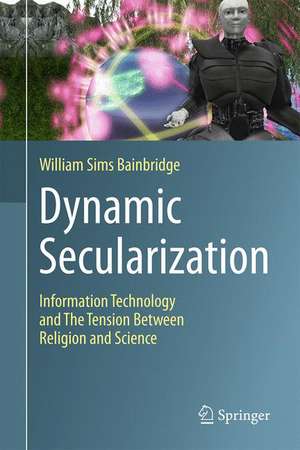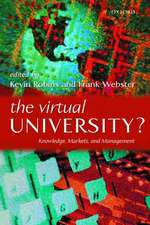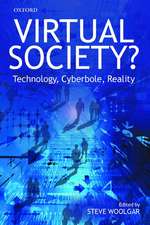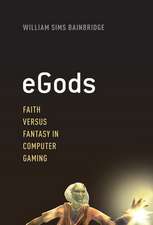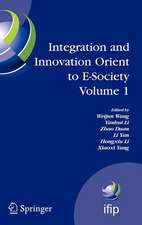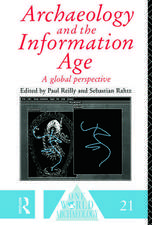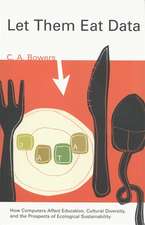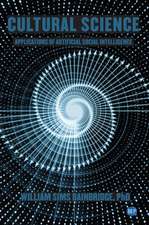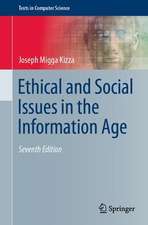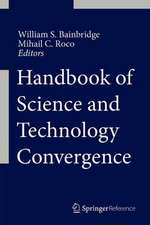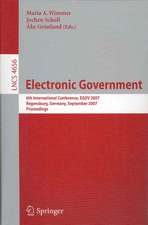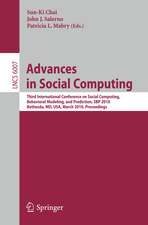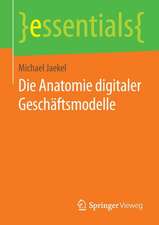Dynamic Secularization: Information Technology and the Tension Between Religion and Science
Autor William Sims Bainbridgeen Limba Engleză Hardback – 22 mai 2017
Working from the premise that the relationship between science and religion is complex, the author demonstrates that while science has contradicted some specific religious beliefs, science itself may have been facilitated by beliefs formed many centuries ago. Science assists engineers in the development of powerful new technologies, and asserts that the universe is based on a set of fundamental principles that can be understood by humans through the assistance of mathematics.
The challenging ideas discussed will benefit readers through sharing a variety of Internet-based research methods and cultural discoveries. The book provides a balance betweenquantitative methods, illustrated by 24 tables of statistics, and qualitative methods, illustrated by 30 screenshots of computer-generated virtual worlds. Analysis interweaves with description, creating a sense of involvement in the experience of exploring online realities at the same time as radical insights are shared.
| Toate formatele și edițiile | Preț | Express |
|---|---|---|
| Paperback (1) | 593.15 lei 38-44 zile | |
| Springer International Publishing – 8 aug 2018 | 593.15 lei 38-44 zile | |
| Hardback (1) | 652.07 lei 3-5 săpt. | |
| Springer International Publishing – 22 mai 2017 | 652.07 lei 3-5 săpt. |
Preț: 652.07 lei
Preț vechi: 815.09 lei
-20% Nou
Puncte Express: 978
Preț estimativ în valută:
124.79€ • 127.79$ • 103.80£
124.79€ • 127.79$ • 103.80£
Carte disponibilă
Livrare economică 26 februarie-12 martie
Preluare comenzi: 021 569.72.76
Specificații
ISBN-13: 9783319565019
ISBN-10: 331956501X
Pagini: 268
Ilustrații: VIII, 268 p. 27 illus., 25 illus. in color.
Dimensiuni: 155 x 235 mm
Greutate: 0.6 kg
Ediția:1st ed. 2017
Editura: Springer International Publishing
Colecția Springer
Locul publicării:Cham, Switzerland
ISBN-10: 331956501X
Pagini: 268
Ilustrații: VIII, 268 p. 27 illus., 25 illus. in color.
Dimensiuni: 155 x 235 mm
Greutate: 0.6 kg
Ediția:1st ed. 2017
Editura: Springer International Publishing
Colecția Springer
Locul publicării:Cham, Switzerland
Cuprins
Fragmentation: Online Evidence about Religious Innovation.- Humanization: The Crash or Reboot of Social Psychology.- Paganization: The Virtual Revival of a Cult Online.- Residualism: Online Survival of Rejected Religions.- Jediism: The Most Popular Online Virtual Religion.- Pessimism: Critiques of Religion and Technology in the Fallout Games.- Optimism: Religious Diversity in the WildStar Massively Multiplayer Online Game.- Transhumanism: An Online Network of Technoprogressive Quasi-Religions.- Transcendence: Virtual Artificial Intelligence.
Recenzii
“This book is a highly detailed account of alternative schools of religion and science fueled by the power of the Internet. … The author has researched many of these counterculture views of science and religion, but the text will be of interest to those seriously studying such entities.” (Computing Reviews, October, 2017)
Textul de pe ultima copertă
This book discusses secularization, arguing that it may be more complex and significant than is generally recognized. Using a number of online exploration methods, the author provides insights into how religion may be changing, and how information technology might be energized in this process.
Working from the premise that the relationship between science and religion is complex, the author demonstrates that while science has contradicted some specific religious beliefs, science itself may have been facilitated by beliefs formed many centuries ago. Science assists engineers in the development of powerful new technologies, and asserts that the universe is based on a set of fundamental principles that can be understood by humans through the assistance of mathematics.
The challenging ideas discussed will benefit readers through sharing a variety of Internet-based research methods and cultural discoveries. The book provides a balance betweenquantitative methods, illustrated by 24 tables of statistics, and qualitative methods, illustrated by 30 screenshots of computer-generated virtual worlds. Analysis interweaves with description, creating a sense of involvement in the experience of exploring online realities at the same time as radical insights are shared.
Caracteristici
Explores how information technology reveals and energises the conflict between science and religion Offers many new insights on the transformation of civilisation by information technology Clearly demonstrates numerous online social science research methodologies
